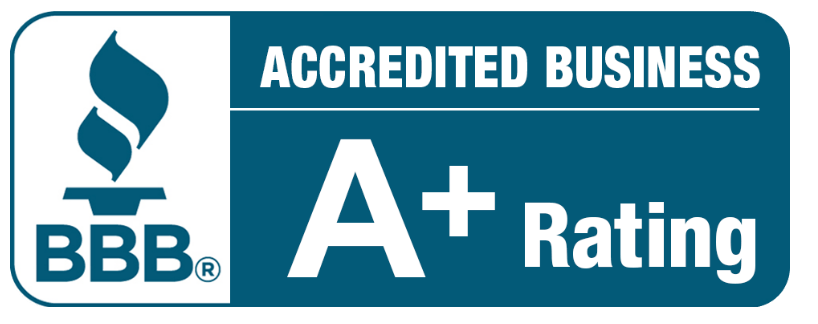Insulation is a critical component in modern construction, playing a pivotal role in energy efficiency and comfort in buildings.
Let’s explore the science behind insulation, its types, benefits, and the latest innovations in the field.
What is Insulation?
Insulation refers to materials used to slow down the transfer of heat, either from inside to outside a building or vice versa. Common insulation materials include fiberglass, foam, and cellulose, each with unique properties like thermal resistance, air sealing, and moisture control.
Fiberglass Insulation
Fiberglass insulation, made from fine glass fibers, is lightweight, non-flammable, and widely used for insulating walls, roofs, and floors in both residential and commercial buildings due to its effective heat transfer minimization.
Foam Insulation
Foam insulation, available as spray foam and rigid foam boards, is known for its high R-value and moisture resistance, making it ideal for sealing gaps and insulating walls, foundations, and roofs.
Cellulose Insulation
Cellulose insulation, created from recycled paper treated with fire retardants, is an environmentally friendly option offering good thermal performance and soundproofing, commonly used in attics and wall cavities for retrofitting older homes.
The Science of Insulation
The primary function of insulation is to reduce heat transfer, which occurs through conduction (direct contact), convection (fluid movement), and radiation (energy transfer). The effectiveness of insulation is measured by its R-value, a metric indicating its resistance to heat flow. Higher R-values mean better insulation performance.
Types of Insulation and Their Applications
- Blanket Insulation: This type includes batts and rolls, often made of fiberglass or rock wool. It’s suitable for floors, walls, and ceilings.
- Residential Use: Widely used in homes for insulating floors, walls, and ceilings due to its flexibility and ease of installation.
- Commercial Use: Also suitable for commercial buildings, especially in standard stud and joist spacing that doesn’t require cutting and fitting.
- Foam Board Insulation: Made of polystyrene or polyurethane, foam boards are excellent for insulating external walls and basements.
- Residential Use: Ideal for insulating basements and external walls in homes, offering high R-values and moisture resistance.
- Commercial Use: Commonly used in commercial construction for exterior wall sheathing and as a continuous insulation solution.
- Loose-fill and Blown-in Insulation: Consisting of small particles like cellulose, fiberglass, or mineral wool, this type is perfect for irregularly shaped areas and retrofitting.
- Residential Use: Best for attics and hard-to-reach areas in homes, particularly effective in retrofitting older houses with irregular or obstructed spaces.
- Commercial Use: Suitable for commercial buildings requiring insulation in areas with irregular shapes or obstructions, often used for attic spaces.
- Reflective Insulation and Radiant Barriers: These are used in attics to reflect heat away, reducing cooling costs.
- Residential Use: Primarily used in homes in warmer climates, installed in attics to reflect heat and reduce cooling costs.
- Commercial Use: Effective in commercial buildings with large attic spaces, especially in regions with significant cooling needs.
For both residential and commercial buildings, the choice of insulation type largely depends on the specific needs and design of the structure.
The Benefits of Proper Insulation
Below are the benefits of proper insulation.
- Energy Savings: Insulation significantly reduces the need for heating in winter and cooling in summer, leading to substantial energy savings.
- Lower Energy Bills: The improved energy efficiency directly translates into lower utility bills for both heating and cooling.
- Reduced Carbon Footprint: By using less energy, well-insulated buildings contribute to a smaller carbon footprint and environmental impact.
- Consistent Indoor Temperatures: Insulation helps in maintaining stable and comfortable indoor temperatures throughout the year.
- Noise Reduction: Insulation acts as a sound barrier, effectively reducing external noise pollution and creating a quieter indoor environment.
- Moisture Control: Proper insulation can help in regulating indoor humidity levels, reducing the risk of moisture-related issues like mold growth.
- Improved Air Quality: By preventing drafts and reducing the infiltration of outdoor pollutants, insulation can contribute to better indoor air quality.
- Increased Property Value: Buildings with high-quality insulation are often more desirable, potentially increasing property value.
- Enhanced Durability of Building Structure: Insulation can protect the building’s structure from temperature-related stress and moisture damage.
- Healthier Living Environment: A well-insulated building provides a healthier living and working environment by maintaining temperature and reducing risks associated with dampness and mold.
- Eco-Friendly Living: Using sustainable or recycled insulation materials promotes eco-friendly living and aligns with green building practices.
Installation and Safety Considerations
While some insulation types can be installed DIY, others require professional installation for maximum efficiency. Safety is paramount; some insulation materials can release harmful fibers or require protective gear during installation.
Insulation and Building Codes
Local building codes often dictate the minimum R-value for insulation in new construction. Adhering to these codes ensures energy efficiency and compliance with regional standards.
Innovations in Insulation Materials
The insulation industry continually evolves, with emerging materials and technologies offering better performance and sustainability. Eco-friendly options, like recycled denim and sheep’s wool, are gaining popularity for their lower environmental impact.
Effective insulation is key to modern construction, offering immense benefits from energy savings to enhanced comfort. At A Affordable Insulators, Houston’s leading insulation contractor, we understand the critical role insulation plays in your home or building. With our expertise in the latest insulation types and technologies, we’re here to guide homeowners and builders in Houston towards making informed decisions that contribute to sustainable, efficient, and comfortable living environments. Ready to optimize your property with top-notch insulation? Contact A Affordable Insulators today and take the first step towards a greener, more cost-effective future!






